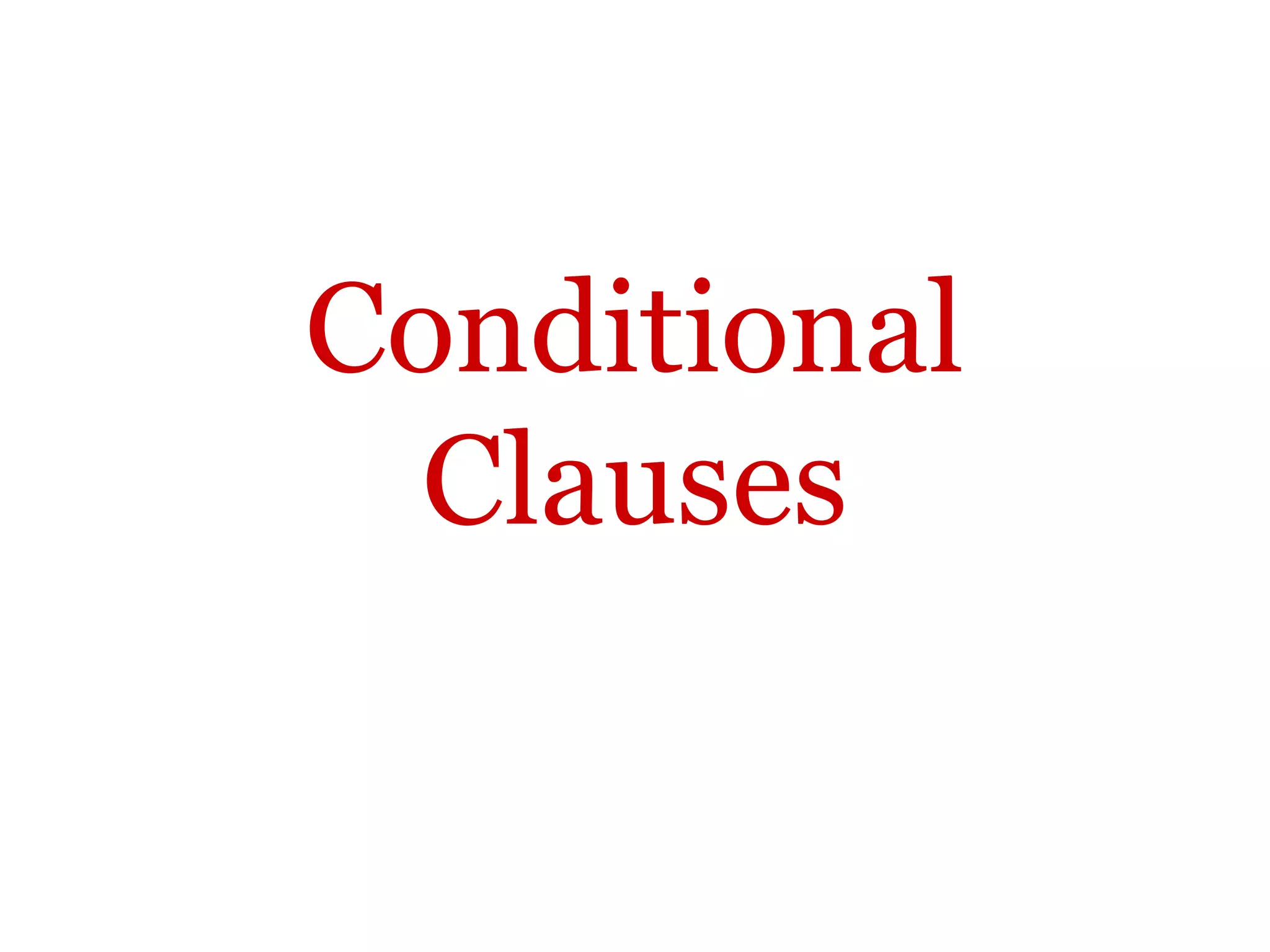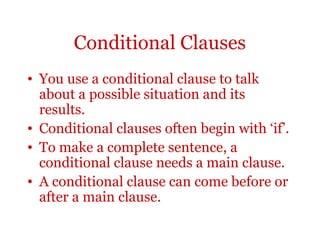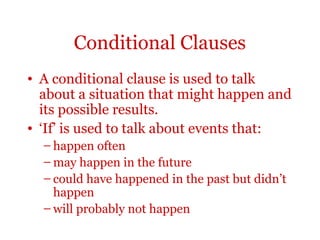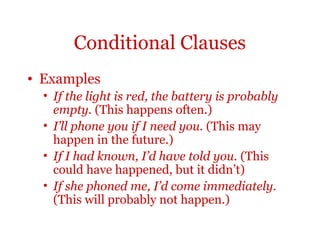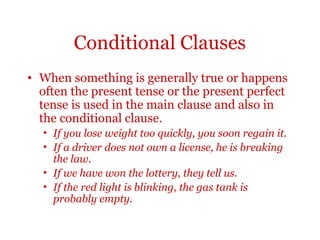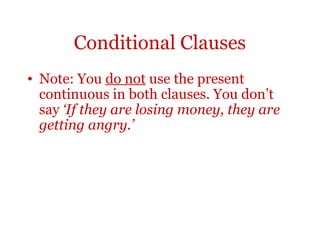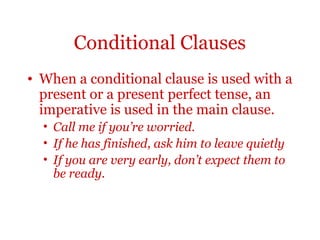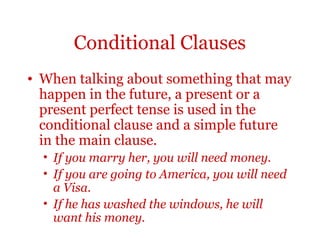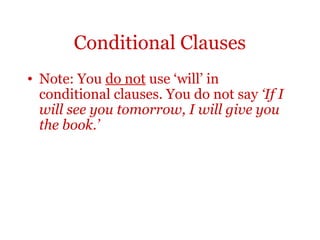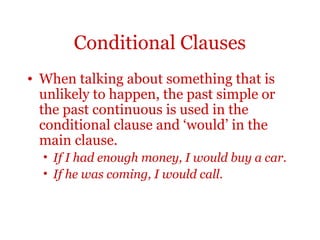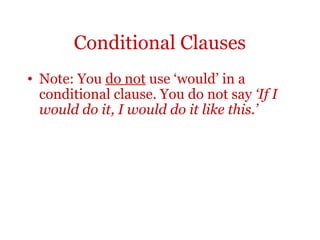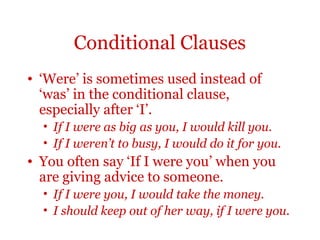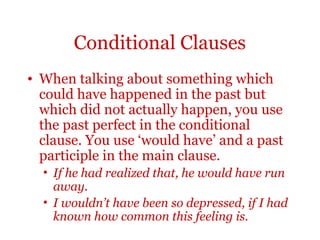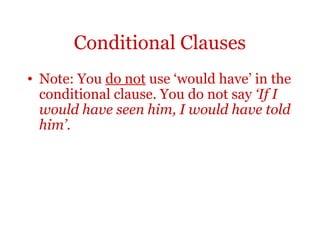Conditional clauses are used to talk about possible situations and their results. They often begin with "if" and contain two clauses - the conditional clause and the main clause. The tenses used in each clause depend on whether the situation is present/ongoing, future, unlikely, or hypothetical in the past. For example, present tense is used if something happens often, future tense if it may happen, past tense if unlikely, and past perfect if hypothetical in the past.
